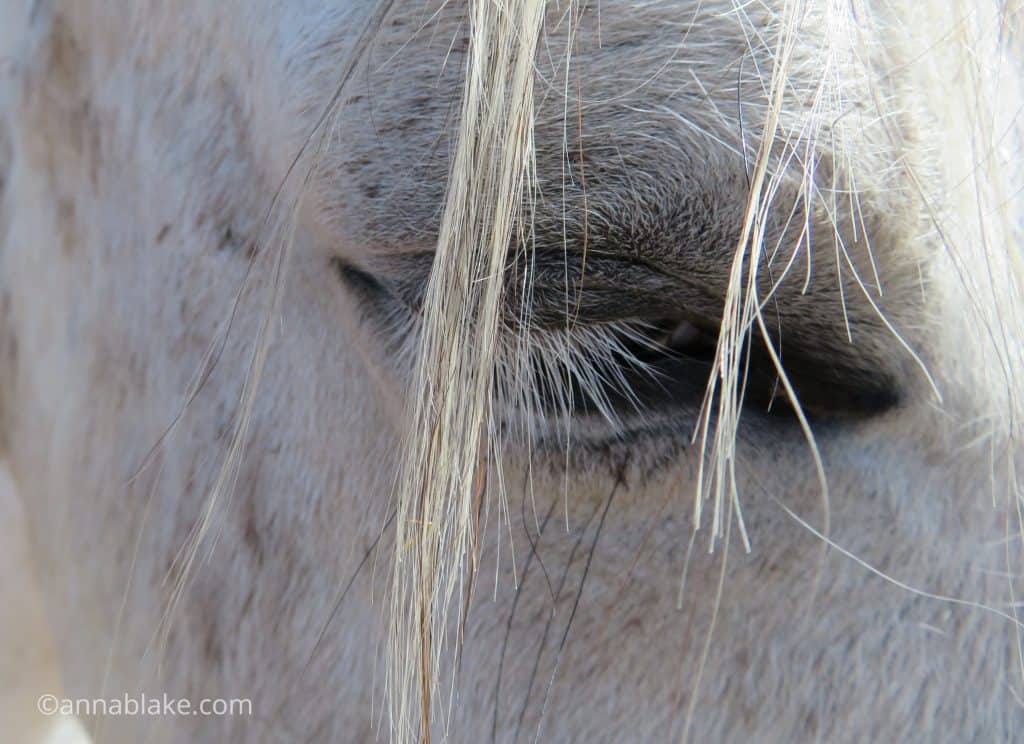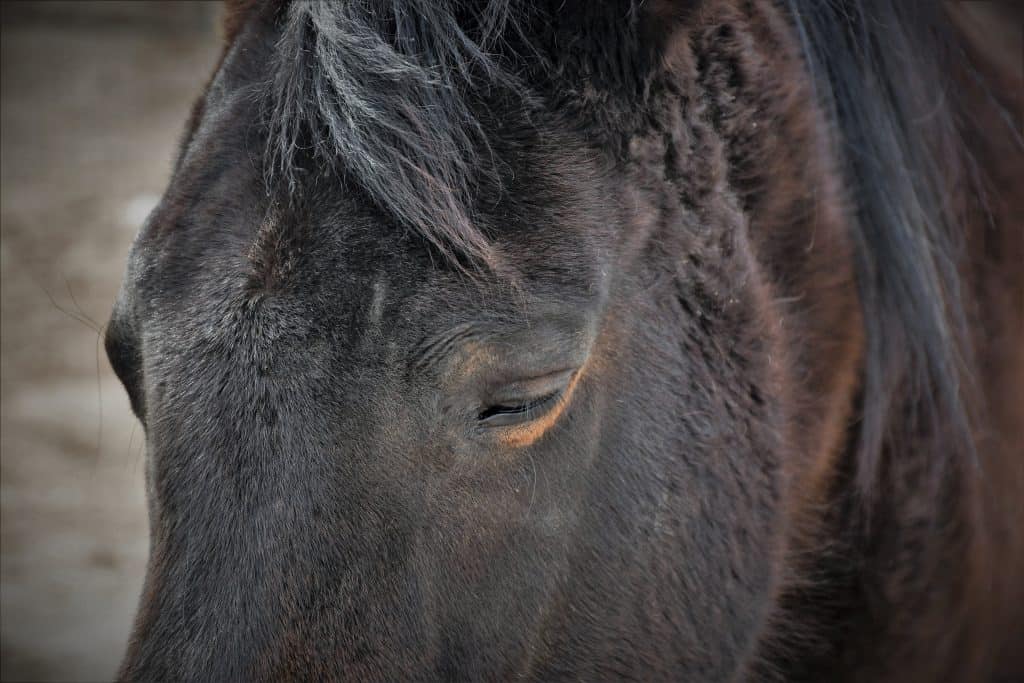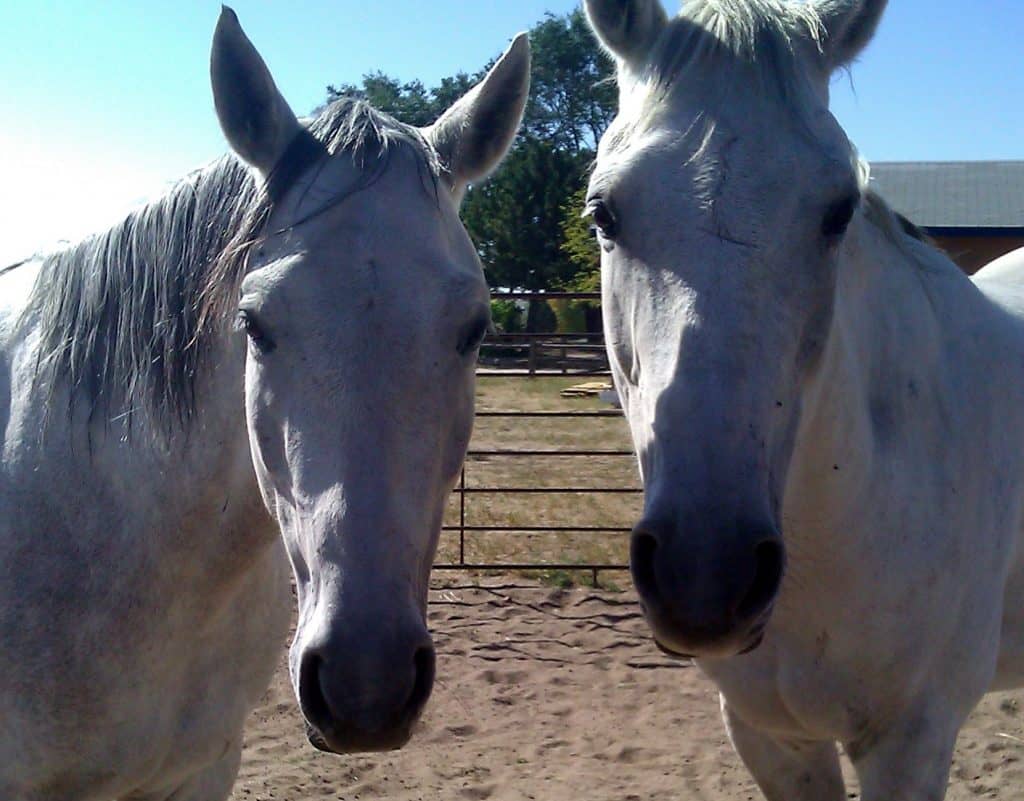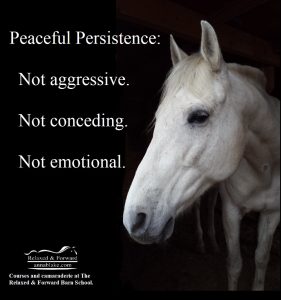
I feel it in my bones like a rusty joint before a rainstorm. An itch that flopping around in a dirt bath might not cure. Alas, I feel a rant coming on. Sometimes I just need to vent a little so that I’m fit company for horses again. You may notice I’m not apologizing.
A friend and I are preparing for a presentation called Horse-keeping as a Spiritual Practice. It’s a topic she and I have talked about for years and are looking forward to sharing with folks at The Barn School. We will talk about the deep regard we have for horses.
The problem is, I don’t like the word most commonly used: “connection.” I looked it up in Oxford’s Dictionary to see if I could get on the good side of it. They said connection is a relationship in which a person, thing, or idea is linked or associated with something else. A person and a something? Surely not the word for horses. The second definition says a supplier of narcotics. Racy for the Oxford Dictionary, but probably closer to the truth.
When I think about the images humans choose to show their human-horse “connection” it’s a close-up of their foreheads touching, eyes closed. I think we are supposed to be awestruck that the person has an enviable, nearly mystical, “connection” with the horse. Shaking my head, I want to shout, you’re not listening! It might flatter you, but that isn’t what closed eyes mean for a horse.
A partially closed eye can be a sign of relaxation if they are safely out of reach of humans, but it’s something else entirely if they are close to us. If you understand their body language or Calming Signals, closed eyes are avoidance, a way for horses to pull inside themselves. It’s a way of shutting down. Not what you want to hear?

Would you believe behaviorists? They say horses close their eyes when we get close because it’s a natural protective reflex. It’s triggered by the proximity of something to their sensitive eyes, which might cause irritation or damage. Essentially, they’re shielding their eyes from something that’s dangerous or just too close. Different words, but the same thing. The horse doesn’t feel safe.
It’s okay if you don’t believe in Calming Signals or behavioral science. But if you’re looking at that picture and thinking that it’s a beautiful moment of sacred connection, you’re making up a story. Putting false emotions on the horse, just like the person in the photo. Am I being unkind by sticking up for the horse? How did our feelings get more important than our horses?
That’s easy to answer. We grew up this way. Human exceptionalism is the concept of human supremacy. It’s the idea that we are separate from, and superior to, nature. Our value is intrinsic. We can justifiably exploit lower life forms for our benefit. Many species’ survival depends on each other; the circle of life maintains a delicate, not always pretty, balance. We’re just more arrogant than others.
Half of social media is the photos of terrified horses in pain and physical abuse. The other half is full of romantic images of fantasy “connections.” I worry humans are still missing horse’s true value. That we will be forever making up stories instead of listening to horses. We are moving toward being less cruel, but now we stifle their voices with sickly sweet affectations. As if we prefer horses to be more human, all dressed up for a date, rather than appreciating their true nature, never quite tame. Never belonging to anyone but themselves. The horses we fell in love with before we wanted to change them.
I guess the thing I’m uncomfortable with is all the human posturing that goes on. What am I supposed to think? It’s like they’re circus performers, not that circuses are all that great. But people are standing on horse’s backs, laying next to them, and most of all, gripping their faces. It’s human ego, not about the horse at all. I’d be embarrassed to post photos like that.
I’m not saying I’ve never shown off or been ambitious. It’s that I wanted to show the horse off. My mare, who has a shrieking soprano voice of her own, wouldn’t tolerate less. She does as I ask because half the time, I do what she asks. That’s how partnership works. We breathe and get along, a quality that doesn’t make for dramatic, heart-wrenching images.
Understanding Calming Signals does kind of ruin people’s fun. Displaced emotions might have seemed like affection or playfulness. We have to be willing to see their side, things we don’t want to know. Once we do, it’s hard to unsee the anxiety and pain. Then it’s no more rodeos, no more horse races. And no more fairy tale romances with horses whose eyes are shut tight with dread. Blame me. I’ll be coming for Prince Charming next. Or am I already too late?
Thinking about the horsepeople I respect, they weren’t much to watch. It was those who were there for the horse, not the photo op. It was how things looked when no one was looking. How did the human help the horse find their confidence? How did the horse’s eye change when they saw their human? That kind of subtle interaction with horses isn’t a secret. It’s just that horses have a hard time getting a Calming Signal in edge-wise when our emotions steal the moment.
The obvious problem with human exceptionalism is that it isn’t true. We aren’t as loyal as dogs, as confident as cats, or as smart as donkeys. We don’t trust that horses would have anything to do with us if we didn’t have a death grip on them, with fear or love. But don’t sell yourself short. It isn’t an all-or-nothing proposition. There is a sweet spot in the middle, between cruelty and mush.
Nature has a way of revealing just what we were looking for as soon as we stop flapping about it. When we get over our false exceptionalism, words like “connection” only trivialize the new rapport. The previous training methods seem loud and disruptive. Horses volunteer things that go beyond any tricks we could train, any staged photos we could share. Words become flat because the universal language of the natural world is Calming Signals, more expressive than English. The less we control horses, the more the silence fills with the embodiment of concepts like trust and confidence. Oneness is the normal condition.
The change feels almost like a mystery. Something those in the herd knew all along, but we have to listen to understand. By avoiding the extremes of love or hate, we settle into calmness and safety. Like “yes” is the only word, and even that is a prayer.

Join us for Horse-keeping as a Spiritual Practice on Zoom, Saturday, December 14th at 1pm MST or catch the replay at The Barn School. Everyone is welcome.
…
An audio version of this essay is available to those who subscribe on Substack.
Relaxed and Forward Training with Anna Blake is no longer on Facebook because of repeated hacking. If you or your horse appreciate my writing, please share, subscribe to this blog, or join me at The Barn School. Find me on Substack where I post The Gray Mare Podcast and on Blusky.
 The Barn School is our social and educational site, with member sharing and our infamous Happy Hour. Everyone’s welcome.
The Barn School is our social and educational site, with member sharing and our infamous Happy Hour. Everyone’s welcome.
Visit annablake.com for archived blogs, signed books, subscribe to this blog, or ask Anna a question about the art and science of working with horses.
Want more? Become a sustaining member, a “Barnie.” Subscribe to our online group and support the best bunch of like-minded horsepeople anywhere.
Ride for a new brand, find our Relaxed & Forward and Undomesticated Women swag at Zazzle.
I hear your rant, and it connected with me 😉. Language is inadequate to fully convey concepts like human-horse “connection”. Mostly because those who really have a solid grasp on the relationship, like you, are trying to explain something you’ve spent a lifetime sensing, feeling, observing . . Explaining in a moment what took years to comprehend. So distilling that understanding into a single word like connection, in the hope that an audience without those years of experience will get all the underlying nuance, is always going to fail. Some will hear and understand, because they’re on the same path as you. But most will hear the word, immerse it in a bath of all their own emotional baggage, and assume they get the concept. Our monkey brains can’t get out of their own way. We can’t even manage human-to-human connection most of the time, let alone inter-species connection.
But you and other horse people ARE pushing the evolution. The pendulum swings from cruelty to treacly love as it always has. The middle ground, however, is widening, as our collective awareness grows, fed by the conversations we in the middle are having.
Have faith that the conversation is helping our connection grow, one monkey brain at a time. Each one, in turn, helps one more horse. Just like that beached starfish that got tossed back in the sea.
I admire your writing, and look forward to more.
Thanks for talking about the un-talkable! Great comment, Cynthia
I have donkeys. They will seek me out to hold the weight of their heads, sometime with eyes closed. I thought they preferred it, but I don’t do it if they haven’t “asked”. What do you thinks happening? Is it surrender and supplication to my presence? I have thought they sought it out, but am willing to learn differently. Thank you.
Kate, I know donkeys who do the same, especially with other donkeys. Without seeing a video of yours, I can’t be sure. (I never substitute another’s eyes for mine, I might see something they don’t.) Nuance exists in the animal’s eyes and ears and muzzle. Your description isn’t complete enough to guess. It could be as simple as they can’t itch under their chin. It may be related to hand treats (food anxiety), or a memory from the past. But if we do any behavior often, it becomes a habit for them, even if we misunderstand the question. Usually when the thing they are ‘saying’ is resolved, the behavior stops. Surrender and supplication are dominance hierarchy ideas that really don’t come into play. Bottom line: often animals do things we think are cute or affectionate when they are asking us for help with something. Learning about Calming Signals are an important step in understanding them.
This post reminds me of a bible verse, which likely contributes to the “human supremacy” fallacy.
(Genesis 1:26) And God said, Let us make man in our image, after our likeness: and let them have dominion over the fish of the sea, and over the fowl of the air, and over the cattle, and over all the earth, and over every creeping thing that creepeth upon the earth.
I would argue that dominion here does not mean domination – it means stewardship. Dominion is not power over, but responsibility for. And since we are also animals – this should extend to our fellow humans as well. We have a long way to go…
In prep for this presentation, we were talking about this exactly. We are asked to be good stewards… Agreed, Christian. Thanks.
I think the biblical use of the word “dominion” means “to rule or have power over” esp if you take into account the “subdue the earth” part in Genesis 1:28.
Whether intended or not, humans ran with the idea…
One reason we now see a difference between religion and spirituality. Thanks, Michelle.
As you have suggested in the past, I prefer Trust to the terms Love or Connection.
Thanks, Peggy. Definitely better things than love.
Ears, energy and trust are my connection go-to’s. I’m with you on the face plant photos. Eyelid position is just one more thing to notice for me.
“I’ll be coming for Prince Charming next. Or am I already too late?”
Way too late. 😉
I thought so. Thanks, Michelle
How do you do it?
Sadly, every word is true.
I haven’t been able to enjoy any horse sport for decades. Actually, most animal sports are out for me … because of the humans
And, where did you find that term ‘false exceptionalism’?
Gotta meet you some day, thank you for being you Anna!
Yes, Ellen, but in every sport, there are a few on the right side and I still cheer them. We can get past this…
As for ‘false exceptionalism’, it fell out of my fingers. My theory is someone else, probably with 4 feet, writes these blogs.
Thanks, Ellen.
When I was still showing I often got opinions from others that I was allowing my horses too much input and autonomy. And sometimes especially if we were winning.
As I have changed my process and my interaction with my horses, I notice that they tell me even more what and how they want me to be. It’s taken me away from most horse sports and showing. I measure my success deferently. You define these changes beautifully.
Thanks, Mary. From one Arabian rider to another, they are amazing teachers…
Thank you, Anna, and readers. Y’all sure have a way with words, all trying to get us to the same goal! I sure do cotton to it all!
Thanks, Lynell. I’m impressed with everyone, too.
“She does as I ask because half the time, I do what she asks. That’s how partnership works.” That’s my mare and me.
Good to hear, Dianne
As I read this, about the meaning of horses’ closed eyes, I thought of myself – I cannot play baseball or tennis because my eyes involuntarily (or subconsciously?) close as the projectile sphere gets closer. Perhaps horses view a human’s forehead as a similar invasive object?
It is a natural reflex, it’s how we don’t get more grit in our eyes than we do. Dogs and cats do it. And being an introvert, I tend to look away or close my eyes when around face talkers. Maybe the real question, is do we respect the other’s space… Thanks, Cindy
Expanding my understandings with every post. Thanks Anna
Thanks for reading along, Sheri